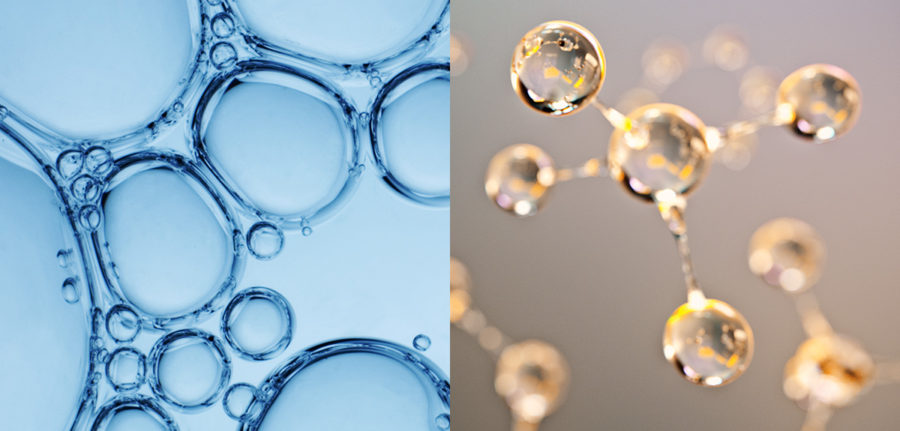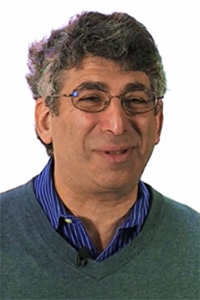
By Bennett McIntosh
Two of the most pressing energy and environmental challenges facing cities and countries today are adapting urban water systems to handle the impacts of increasing rainfall, including floods and more contaminated water, and removing CO2 from the atmosphere. The Andlinger Center for Energy and the Environment has awarded two research teams the 2019 grant for Innovative Research in Energy and the Environment to address these critical issues. The research projects span seven departments across Princeton University and include 12 investigators.
“Bringing Data Science and Machine Intelligence to Water and Energy Research,” will use artificial intelligence tools to help urban water utilities predict how floodwaters will move through their jurisdictions and how much energy it may take to treat the water, and prevent large system failures from increasingly intense storms. “A Hybrid Bioelectrochemical Approach to the Synthesis of Organic Feedstocks from CO2,” will develop a specially designed reactor that uses unique microbes and electrochemistry to turn CO2 into molecules useful for fuel and manufacturing.

Municipal water systems are full of sensors that track the quality, flow, and toxicity of tap water, wastewater, and stormwater. But more than 90% of that data is hardly used. “Bringing Data Science and Machine Intelligence to Water and Energy Research,” aims to help utilities keep up with the demands of delivering clean water in light of intensifying rainfall, glacier melt, and sea-level rise. Mengdi Wang, associate professor of operations research and financial engineering, is leading a team to apply big data techniques to water management. The team has partnered with water utilities from Oregon to Virginia to map waterways. Using deep neural networks that learn from time-course data, such as information from thousands of different water sensors, the team aims to identify vulnerable areas, predict water conditions, and anticipate system failures before they happen. Providing information to managers of sewer and wastewater systems about how their systems run may aid in creating plans to contain overflows and better manage severe events. The project spans the fields of statistics and machine learning, optimization modeling, and environmental engineering, and includes investigators in the Department of Civil and Environmental Engineering, Department of Electrical Engineering, and Department of Computer Science.

“A Hybrid Bioelectrochemical Approach to the Synthesis of Organic Feedstocks from CO2,” aims to develop an economical way to use captured CO2 to produce useful chemicals using engineered bacteria. The team, led by Andrew Bocarsly, professor of chemistry, will develop a hybrid bioelectrochemical reactor that converts CO2 into food for bacteria, and then enables the bacteria to produce chemical compounds. These compounds are the basis for biofuels, pharmaceuticals, and other everyday products, and are typically derived from fossil fuels. The key idea is to convert CO2 into more digestible compounds for the bacteria, both finding a use for excess carbon and lessening the reliance on fossil fuels for chemical production. The project spans the fields of nanomaterials engineering, genetic engineering, electrochemistry, and polymers, and includes investigators in the Department of Chemistry, the Department of Chemical and Biological Engineering, the Department of Civil and Environmental Engineering, and the Department of Mechanical and Aerospace Engineering.
“The Andlinger Center is committed to getting projects off that ground that may significantly advance solutions to energy challenges in the long term,” said Peter Jaffe, associate director for research at the Andlinger Center. “Bringing together key research areas through the seed grant, from chemistry to operations research and financial engineering, is critical to developing new innovative effective technologies.”
The funding for the two projects totals $600,000. The grant is intended to seed projects that bring together diverse teams to solve energy and environmental problems.
“Bringing Data Science and Machine Intelligence to Water and Energy Research”
Principal investigator:
Mengdi Wang, Associate Professor of Operations Research and Financial Engineering
Co-Principal Investigators:
Yuxin Chen, Assistant Professor of Electrical Engineering
Elad Hazan, Professor of Computer Science
Ning Lin, Associate Professor of Civil and Environmental Engineering
Jason Ren, Professor of Civil and Environmental Engineering and the Andlinger Center for Energy and the Environment
James Smith, Professor of Civil and Environmental Engineering
“A Hybrid Bioelectrochemical Approach to the Synthesis of Organic Feedstocks from CO2”
Principal investigator:
Andrew Bocarsly, Professor of Chemistry
Co-Principal Investigators:
Craig Arnold, Susan Dod Brown Professor of Mechanical and Aerospace Engineering, and director of Princeton Institute for the Science and Technology of Materials
José Avalos, Assistant Professor of Chemical and Biological Engineering and the Andlinger Center for Energy and the Environment
Bruce Koel, Professor of Chemical and Biological Engineering.
Lynn Loo, Theodora D. ’78 and William H. Walton III ’74 Professor in Engineering, Professor of Chemical and Biological Engineering, and Director of Andlinger Center for Energy and the Environment.
Jason Ren, Professor of Civil and Environmental Engineering and the Andlinger Center for Energy and the Environment
Michele Sarazen, Assistant Professor of Chemical and Biological Engineering